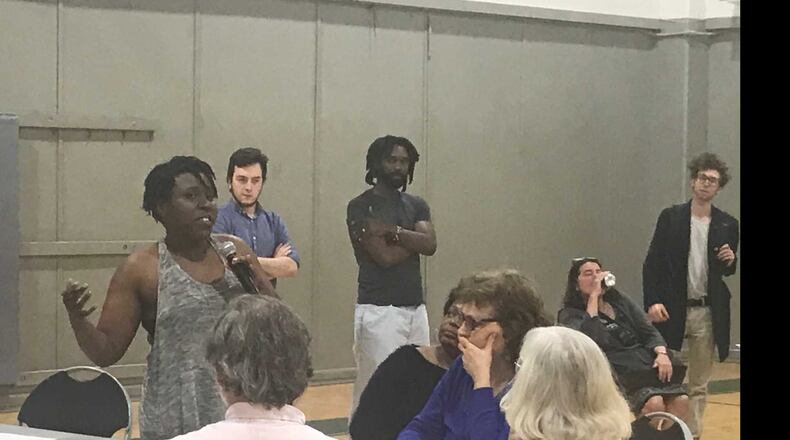ATHENS - A group of about 40 current and former University of Georgia students, faculty and community activists met Wednesday evening to demand the university approve several changes, including reparations, to remedy how they believe the school has benefited from slavery.
The demands include:
- a center on campus that explores the university's history with slavery
- guarantee full-tuition, all-fees-included scholarships for descendants of the enslaved who worked on campus and for every African American student who graduates from a public high school in Athens
- pay full-time and part-time workers at least $15 a hour to address a "massive racial wealth gap."
The group discussed plans for a march Monday afternoon to the university's administration building to publicize its demands. The demands stem from an ongoing debate at Georgia's flagship campus concerning how the university has handled the 2015 discovery of 100 remains in an area on campus that was known to be a former slave burial site.
“(The university has) a responsibility to the people they disgraced,” UGA graduate student Rachelle Berry told the group.
Berry and others explained reparations could include the university investing in local afterschool programs and early childhood development. She said many students support the idea but others have questions and concerns.
Some students and others at colleges and universities nationally in recent months have discussed how their schools can offer various forms of reparations to the descendants of enslaved people. Georgetown University students approved a non-binding referendum earlier this month to increase their fees to create a fund that pays for education and health programs for descendants of the enslaved that benefited the school. Sixty-six percent of its students voted for the referendum.
UGA President Jere Morehead responded in a recent op-ed to the group here by noting the university's ongoing efforts to offer more needs-based scholarships and what he said was a respectful process to handle the burial remains that included a memorial on campus.
About the Author
Keep Reading
The Latest
Featured



